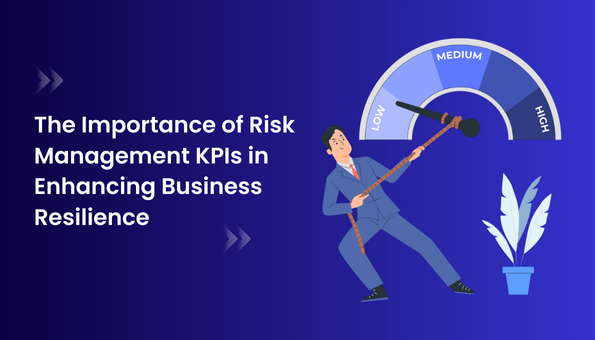Exploring the Long-Term Benefits and Importance of Risk Management for Startups
Exploring the Long-Term Benefits and Importance of Risk Management for Startups
Blog Article
The Value of Recognizing the Relevance of Risk Management in Different Industries
The Core Principle of Risk Management and Its Objective
Risk Management, the keystone of several industries, depends upon the identification, examination, and reduction of uncertainties in a service setting. It is an important technique that allows organizations to secure their properties, credibility, and total survival. By correctly recognizing potential dangers, organizations can develop methods to either protect against these threats from occurring or reduce their effect. The analysis procedure involves examining the probability and prospective extent of these risks. As soon as dangers have actually been identified and evaluated, the mitigation process entails designing techniques to minimize their prospective effect. This procedure is cyclical and recurring, making certain that organizations are gotten ready for the ever-changing nature of Risk in different markets. The key objective, hence, is to foster resilience in the middle of unpredictabilities.
Benefits of Executing Risk Management in Organization Procedures

Unveiling the Role of Risk Management in Different Industries
While every sector confronts its distinct set of risks, the application of Risk Management approaches remains an usual in their search of sustainability and development. In the healthcare sector, Risk Management entails guaranteeing individual security and data protection, while in finance, it involves mitigating financial investment threats and making sure regulative news conformity. Eventually, the role of Risk Management throughout sectors is to determine, assess, and alleviate threats.
Real-life Situation Research Studies Showing Effective Risk Management
To comprehend the relevance of Risk Management in these numerous industries, one can look to a number of real-life instances that illustrate the effective application of these measures. In the energy field, British Oil established Risk mitigation prepares post the 2010 Gulf of Mexico oil spill. They carried out better security procedures and more stringent policies which dramatically lowered additional accidents. In financing, Goldman Sachs efficiently navigated the 2008 financial situation by identifying prospective mortgage-backed safety and securities threats early. Last but not least, Toyota, upload the 2011 earthquake in Japan, revised its supply chain Management to reduce disruption threats. These cases show just how sectors, picking up from crises, successfully used Risk Management approaches to minimize future threats.
Future Fads and Developments in Risk Management Methods
As the world remains to advance, so as well do the patterns and developments in Risk Management techniques. Quick innovations in innovation and data analytics are improving the Risk landscape. Large information and AI are currently crucial in predicting and mitigating risks. Organizations are leveraging these tools to develop predictive designs and make data-driven choices. Cybersecurity, once a peripheral concern, has actually catapulted to the forefront of Risk Management, with methods concentrating on prevention, discovery, and reaction. The integration of ESG (Environmental, Social, Administration) factors right into Risk Management is one more growing trend, reflecting the increasing recognition of the role that social and environmental risks play in service sustainability. Therefore, the future of Risk Management hinges on the fusion of innovative technology, cutting-edge methods, and a holistic method.
Verdict
In verdict, comprehending the relevance of Risk Management across a spectrum of sectors is critical for their durability and success. Eventually, successful Risk Management contributes to much more lasting and resistant businesses, highlighting the relevance of this technique in today's highly competitive and dynamic organization setting.
While every sector confronts its unique review collection of threats, the implementation of Risk Management strategies remains a that site typical denominator in their pursuit of sustainability and growth. In the health care market, Risk Management involves guaranteeing client security and data security, while in financing, it involves mitigating financial investment threats and making certain governing conformity. Ultimately, the role of Risk Management throughout sectors is to recognize, evaluate, and minimize risks. These cases demonstrate exactly how industries, discovering from dilemmas, efficiently used Risk Management methods to decrease future threats.

Report this page